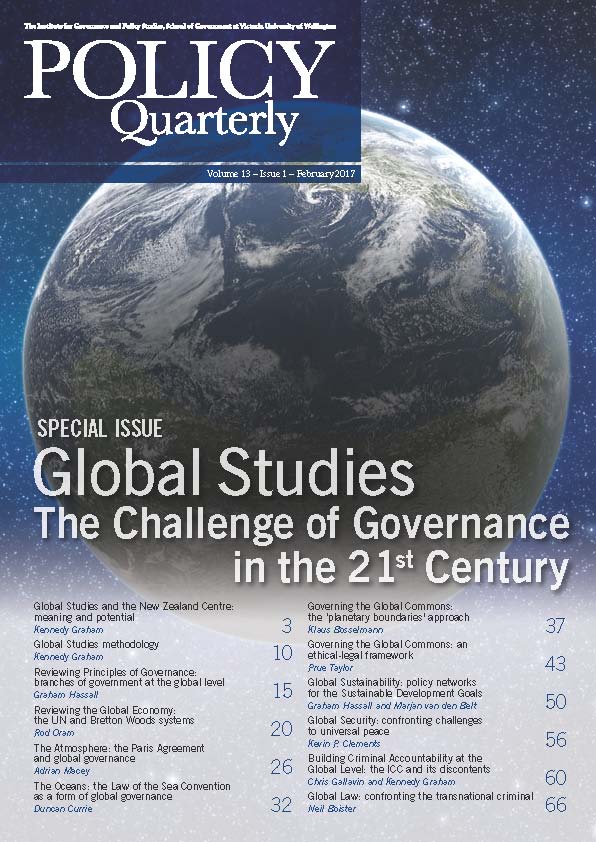Global law: confronting the transnational criminal
DOI:
https://doi.org/10.26686/pq.v13i1.4649Keywords:
global citizenship, transnational criminal law, human rights regulation, global crime, enforcement of criminal jurisdictionAbstract
Philosophers of liberalism from Rousseau to Rawls have placed the good citizen at the centre of the liberal political arrangements they advocate. These good citizens bear their obligations and exercise their rights within the law of nation states. They enjoy status in their communities, communities to which they owe allegiance. Conceptions of the nature of this citizenship vary widely. Some have a trace of the totalitarian. Rousseau famously argued that humans living in a society must reconcile their own sense of subjective freedom with the objective need to act correctly (Rousseau, 1762, chs 5-8). In a state of nature they live only for themselves; as citizens they cease to be individual units and become parts of the new unit, the community.
Downloads
Downloads
Published
Issue
Section
License
Permission: In the interest of promoting debate and wider dissemination, the IGPS encourages use of all or part of the articles appearing in PQ, where there is no element of commercial gain. Appropriate acknowledgement of both author and source should be made in all cases. Please direct requests for permission to reprint articles from this publication to Policy-Quarterly@vuw.ac.nz.



